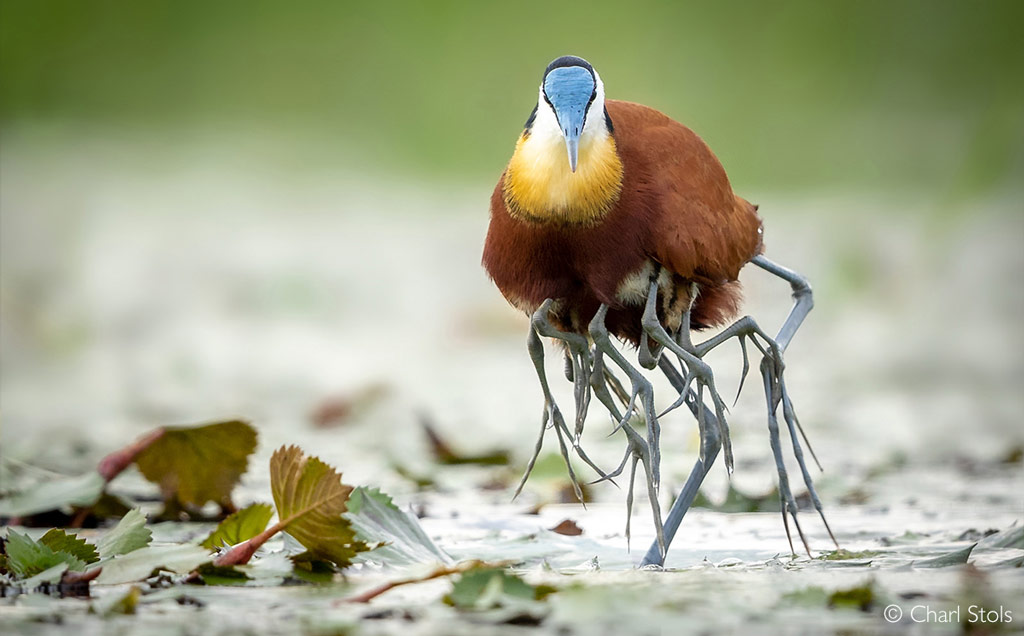
This is a copy of our weekly email newsletter. Subscribe here to receive the newsletter.
Best leopard spots + crane crisis + evolved crocs
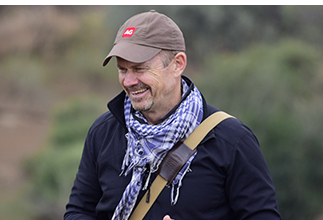
I am so looking forward to the year ahead. teamAG will strive for that edge that defines us as a safari company with a difference. A few stories already in the pipeline will add hugely to your understanding of ground-level conservation realities in Africa. Some may upset you, but mostly, you will learn stuff and be inspired.
It’s also the year in which Ukuri, our venture with African Parks, will blossom like a September knobthorn. More about that in a short while.
A critical issue for us is the feedback loop – we love receiving responses to this newsletter and when you engage with us and others on our social media posts. This interaction allows us to ‘read the room’ and adjust our tone and editorial mix.
‘Reading the room’ reminds me of a game drive I once endured, where our safari guide certainly did not do so. We were all gathered in his vehicle, happily imbued in that expectant vibe one gets at the beginning of a game drive. Our guide strolled up and proceeded to load his 458 rifle – lots of clacking and bicep flexing in that testosterone-infused display. Of course, this was not my first rodeo, and I sat back to watch my fellow guests for their reaction. His performance was met with looks of surprise and distaste combined with narrowed eyelids. Only then did he greet us. Shortly after, the sense of discomfort for all except our guide increased when his safety brief was all about how, a few years back, he had to shoot a big elephant that was ‘misbehaving’. I am happy to advise that this tone-deaf behaviour is exceptionally rare among safari guides, who must rank as some of the most sentient and caring humans on the planet.
Safari njema to our clients out there right now enjoying the intoxicating summer rainfall bushveld experience.

Simon Espley – CEO, Africa Geographic
From our Editor – Taryn van Jaarsveld
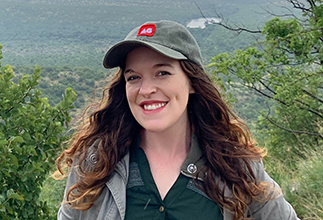
Eager to avoid the noise of politics, social media, corruption and drama this new year? Take a cue from a group of dwarf crocodiles in Gabon, who swam away from it all – into a bat-guano-filled cave, no less – and started evolving. These introverted reptiles traded the chaos of the rainforest for a bat buffet in serene subterranean darkness and solitude. Now, they’re fitter, flashier (orange-tinted, thanks to guano baths), and possibly morphing into a whole new species.
Scientists first studied these crocodiles deep in Gabon’s Abanda cave system in 2010 and have been checking in since. They’ve found the cave crocs have a unique diet of bats and crickets and are in much better condition than their forest cousins. And, new genetic analysis of the crocodiles suggests the orange cave crocodiles are mutating. The reptiles may have even been down in the caves for thousands of years. By dodging the predator-packed forests, these crocs prove that shutting out the world’s nonsense is the key to thriving. So next time a comment thread or mouthy politician rattles your nerves, channel your inner cave croc: retreat, refocus, and let the negativity roll off like bat guano off a crocodile’s back. Escape the drama; evolve in peace.
This week, don’t miss our roundup of the best spots to see leopards in Africa. And read about an important population of black crowned cranes in Chad suffering under the impacts of Boko Haram and fisherman.

DID YOU KNOW?
We donate a portion of the revenue from every safari sold to carefully selected conservation projects that make a significant difference at ground level. YOUR safari choice does make a difference – thank you!
Story 1
https://africageographic.com/stories/the-best-places-to-see-leopards-in-africa/
LEOPARD SPOTTING
Want to spot leopards on safari? Here are the top destinations for seeing these big cats in the wild
Story 2
https://africageographic.com/stories/boko-haram-fishermen-and-the-threat-to-black-crowned-cranes/
CRANE CRISIS
Boko Haram, fishermen, and the threat to black crowned cranes in Chad’s Lake Fitri, a vital bird habitat
 TRAVEL DESK:
TRAVEL DESK:
Our safari picks of the week:
Gorilla trekking in Bwindi, Uganda – 6 days – from US$3,680pps
Gorilla trekking is one of the most exhilarating safari experiences out there. There can be no better place to see the mountain gorillas than Uganda’s Bwindi Impenetrable Forest. This safari allows you to seek out the tree-climbing lions of Queen Elizabeth National Park, explore Entebbe Botanical Gardens and get to know Batwa culture.
You’ll visit Greater Kruger, Cape Town and the Winelands in South Africa; Khwai Community Concession and Chobe National Park in Botswana; and Victoria Falls in Zimbabwe. This is a once-in-a-lifetime adventure for your bucket list.
Still looking for a safari adventure? Browse our ready-made safari ideas OR click here for free safari planning.
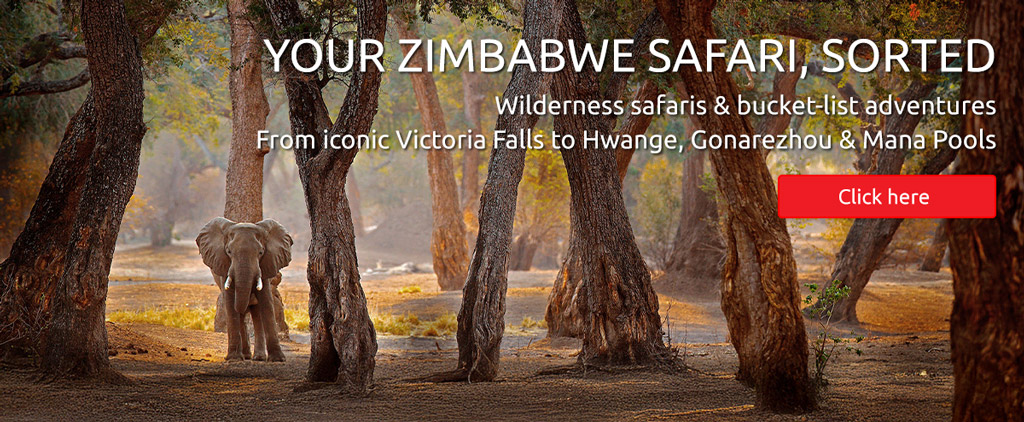
Persecuted pangolins
Another pangolin saved – did you help make it happen?
The latest patient helped by Provet Wildlife Services is a female ground pangolin with an extraordinary tale of survival. Not only was the pangolin (her injuries pictured below) miraculously rescued from the illegal wildlife trade, but vets found she had previously survived being in a wire snare set by poachers. The pangolin’s injury healed with the snare still left inside – demonstrating it had been wrapped around her for some time. Despite the trauma and wounds she sustained, she still had a full stomach of ants and was in better shape than many pangolins rescued under similar circumstances.
Thanks to Provet and Umoya Khulula, the snare was carefully removed and her wounds treated. She is now in the rehabilitation phase of her journey. With your generous support, we hope to see her released back into the wild in no time. The cost of rescuing a pangolin and hospitalising it for one week is about US$800 (ZAR15,000). Be a hero and help with this process by donating and lending your support to the hard-working teams who are dedicated to saving Africa’s pangolins.
Note: all pangolins are housed at offsite locations for security reasons
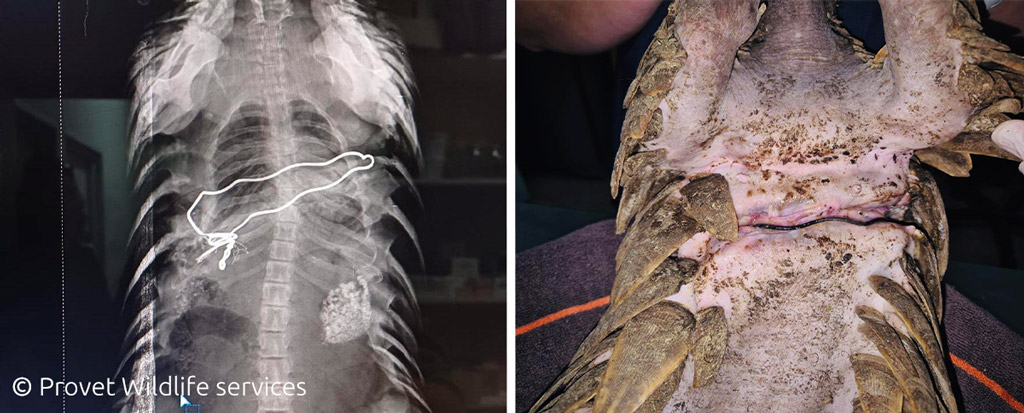
 WATCH: What is the impact of humans on elephant genetics? From the impact of hunting to wars, human activity is reshaping elephant evolution. Here’s how the genetics of Gorongosa’s elephants are changing. (11:57) Click here to watch
WATCH: What is the impact of humans on elephant genetics? From the impact of hunting to wars, human activity is reshaping elephant evolution. Here’s how the genetics of Gorongosa’s elephants are changing. (11:57) Click here to watch
For more videos celebrating Africa, check out our videos here
To comment on this story: Login (or sign up) to our app here - it's a troll-free safe place 🙂.![]()






